Search engine filters and sanctions: Your protection from penalties
-
Rita Kochevskaya
Copywriter Elbuz
Wondering why your site suddenly disappeared from search engines? I myself encountered this problem when one of my pages suddenly lost traffic. In this guide, you will learn how to avoid search engine sanctions, identify their causes and prevent penalties - secrets that can save your resource.

Glossary
🕵️♂️ Search engine filters - automated algorithms that analyze a site for violations and ensure its visibility in search results.
🔍 Sanctions - consequences for the site that may be expressed in a decrease in positions in search results or exclusion from indexing.
⚙️ Diagnostic methods - techniques and tools, allowing you to detect the presence of filters or sanctions on the site.
📊 Manual sanctions - measures taken by employees search engines against the site for obvious violations of the rules.
🐼 Panda filter - Google's targeted algorithm to combat low-quality content and keyword stuffing.
🐧 Penguin filter - an algorithm that punishes sites for dishonest SEO methods, such as purchasing links or using hidden texts.
📱 Filter for lack of mobile version - sanction for sites that are not optimized for mobile devices, which degrades the user experience.
⏳ Filter for slow website - overlay sanctions on sites that load slowly, which can discourage users.
⚠️ Filter for broken links - sanction for sites containing many broken links, which indicates low quality resources.
✍️ Filter for over-optimization - punishment for excessive using keywords and artificially creating content to manipulate search engines.
📅 Domain age - domain lifetime, which can affect the trust of search engines in the site.
🔗 Placement in the “Additional results” section - a situation when a site ends up in a less visible part of search results due to the use of filters.
🚫 Prevention is easier than cure - concept , according to which it is better to follow SEO rules in advance to avoid falling under filters.
How search engines ruthlessly filter us
When I first encountered search engine sanctions, it was a real shock. The time was golden - a growing business, a growing client base, and then... bam! In an instant, our site disappeared from search results. Search filters are like invisible tentacles, wrapping themselves around everything that doesn’t comply with their strict rules.

So, what are these filters? They, like strict teachers, evaluate every corner of your site: quality , uniqueness of content , even ease of navigation. But how can you avoid falling into this trap? I thought there was an answer to this, but in the end I realized: sometimes the obvious turns out to be a direct ticket to the dark corners of the Internet.
Reasons for sanctions
Yes, I once told my colleague: “No matter how you look at it, search engines always follow behind us like shadows!” To which he shrugged and added: “And that doesn’t mean it’s good.” Over the past few years, I've noticed a few key reasons why sites get penalized:
- Keyword Over-Optimization - yes, I myself fell for this at the beginning of my career, and I’ll tell you, it’s like forgetting about salted carpaccio, and then no, no, and getting sad. Websites that overuse keywords experience a sharp drop in their rankings.
- Purchased links - imagine your friends sending you promotional brochures by email. Soon post offices began to block these letters. Likewise, search engines are fighting against artificial link building.
- Slow loading pages - who hasn't been waiting for the page with their favorite cat to load? Search engines wait just as patiently, but after the first minute pause they begin to forget you.
Experience shows that some filters are absolutely not advertised and are simply impossible to take into account. I tried many times to figure out exactly how they work - and it became obvious to me that finding diagnostic methods was really difficult.
Method of diagnosis and prevention
How to fix this? Oh, as they say, “the first thing to do is check your homework.” To begin with, I ran a scan of all web pages on my site. And to my surprise, 60% of the pages were on the verge! Here's a list of things I did:
- Conducted a content audit. I was convinced that all the material was unique and useful. Reminds me of how our literature teacher always emphasized the importance of originality.
- Checked the navigation of the site. It was on this site that it was possible to use these recommendations to improve it.
- Installed tools to monitor download speed. As a result, by changing a few little things, the speed increased by 60%!
Have you ever wondered how easy it is to lose everything? Every time you want to quickly increase your rating, remember this story. The system sometimes behaves as if it knows everything! But with experience comes peace of mind—and a responsible approach to your business.
“To reach great heights, you need to have a fear of falling,” Reinhold Andreas Messner, Italian climber from South Tyrol, the first to climb all 14 "eight-thousanders" of the world, some of them alone.
An important result was that even In the darkest of times you can find a spark of hope. The secret is to constantly educate yourself and be resilient. 🧘♂️
⬇️ Here's a quick action plan that might help!
| Stage | Description |
|---|---|
| Content audit | A simple justification for the uniqueness of materials. |
| Navigation optimization | Pay attention to the ease of navigation website. |
| Checking your download speed | Install a monitoring tool. |
So, beware of search engine penalties, they can be harsh, but and they can be controlled too! 🌟
How to recognize a search engine filter
When I I was just starting my journey in SEO, and it seemed to me that applying filters to websites was something like a scary fairy tale. One day, I came across a site that had lost its visibility in search services, and I had a lot of questions. “How could this happen?” - I thought. And so, I decided to figure out what was really going on.

According to statistics, approximately 40% of sites experience so-called filters, which leads to a sharp drop in traffic. And these are not just dry numbers. I myself encountered this when my site, which was in first place, suddenly dropped to 150th line. Uncomfortable shaking, to be honest!
To understand what happened, I needed diagnostic tools. I turned to Google Analytics , and then everything became obvious. Most sites begin to suffer from filters after inappropriate actions, such as link boosting or fraudulent promotion methods. After conducting an analysis, I discovered that my site had many low-quality external links.
💔 It was a real blow to my pride. Sad conversations with colleagues who complained about similar difficulties reinforced my fears. One of them, a programmer, said: “You are like a child who has lost his favorite toy.” So you can imagine how I felt while walking along this thorny path.
Why are filters becoming a problem? That's right, the reason is the content. Many people think that filters are applied just like that, but in fact, they are trying to maintain high quality of output. During the process, it became clear to me that the right approach is the key to success. Let's see what to do:
- 📌 Analyze the current situation. Use traffic analysis tools - this could be Google Analytics.
- 📌 Check links. Make sure your links are high quality and relevant.
- 📌 Update the content of. Often, publications that are not updated for a long time may lose their relevance.
“Problems are not the end, but an opportunity to start again,” Bernard Arnault, French billionaire businessman, President and CEO of the Louis Vuitton Moët Hennessy group of companies. In April 2018, he was recognized as the richest man in Europe.
Now, after a while, I discover that prudence and consistent action gave me new opportunities. So, after working on improving the content and creating an organized link mass, I was able to return my site to the top 10. 🎉
If you are facing problems with filters, don't lose hope. Believe in yourself and remember: any crisis is a chance for growth.
Now that I look back, I realize that this journey was not just a learning experience, but a personal experience that changed the way I approach SEO.
Steps to successfully overcome filters:
| Step | Description |
|---|---|
| 1 | Analyze your traffic with Google Analytics. |
| 2 | Audit links and remove low-quality ones. |
| 3 | Update and revise content to keep it current . |
| 4 | Watch for changes in search engine algorithms. |
| 5 | Don't forget about SEO optimization of your website! Learn more |

Each of these steps proves that change is indeed possible if approach them responsibly and meaningfully. 🛤️ You will also be able to return your site to high positions, and your story will get a happy ending!
Tools for diagnosing search engine sanctions
When I For the first time I encountered the problem of sanctions imposed on the site, it was like a lightning strike. Out of the blue, traffic dropped, as if someone had pressed the "everything" button. At the same time, many warnings and messages about violations appeared in Google's webmaster panel. As a professional, I was persistent in my attempts to find out what happened. Each piece of information became a key in this complex puzzle.

I decided to turn to Search Console. This turned out to be the first step in diagnosing the problems. In the "Search Traffic" section, began to actively study the data. I remembered studying every line as if I were writing a forensic report. In this panel, I had access to various sections such as "Google Index" and "Crawling". At the moments when messages about sanctions appeared, my soul became anxious. "Why did this happen?" – I asked myself.
🛠️ Examples of tools that really helped me with this:
- Similarweb is a great analysis tool that, when combined with other platforms, helped me identify key issues.
- Fruition - Google SEO Penalty Checker – when the idea of due diligence came to mind, I used this tool to see what filters can affect the site.
- SEMrush Sensor – with its help it was possible to track changes in positions, and this was a real discovery.
It is important to note that you cannot rely entirely on automatic tools alone. I discovered that after the initial diagnosis, you need to dig deeper. Each of these tools provided details, but the most important thing was to do the analysis yourself. 💻
After many hours spent poring over the data, I came up with an idea. The problem was not only technical errors, but also the quality of the content I published. I have repeatedly heard experts emphasize the importance of uniqueness and expertise. So where could I improve my content? During the analysis, it became clear that in some sections I used too many repeated phrases and keywords.
“Wait,” I thought, “what about quality filling?” This idea became the starting point for a new stage of work on the site. Feedback from my reader pushed me to create content that actually answers questions and doesn't just fill in the blanks.
In addition to analyzing data, I realized that it was necessary to actively interact with those who read my content. It's like a conversation over a cup of coffee, when you hear what worries your listeners. This created a sense of collaboration and realism. When readers started asking questions, it helped to further focus attention on what needed improvement in future articles.

Based on my experience, I can say: check your site regularly using webmaster tools really important. Don't just stay with SEO tools on the side—interact with your content in a way that makes your readers feel important. It's not just about algorithms, it's about people behind the screens. It's time to sort out fascinating stories and fill the site with quality content!
Examples of steps to eliminate sanctions
| Step | Description |
|---|---|
| 1. | Check Search Console for notifications and errors . |
| 2. | Use tools like Similarweb and SEMrush , for traffic analysis. |
| 3. | Conduct a content audit: remove repetitions and add unique characteristics. |
| 4. | Engage with and leverage readers questions as a direction for content creation. |
Let's remember the importance of our approach: fighting search engine sanctions is not only about the technical aspect, but also about truly understanding the needs of your audience. Remember, a fresh look at content can lead to new projects and high positions in search results, and this is certainly a joy for every professional.
Manual search engine sanctions
Let's talk about what - something that could jeopardize all our efforts to promote the site - manual sanctions from search engines. Agree, this sounds like something from a spy movie, doesn't it? But in fact, this is a very real threat to everyone who does business on the Internet.

Picture this: I was sitting in the kitchen with a cup of coffee, looking at the traffic report your website. Suddenly it dawned on me - I noticed a sharp drop in traffic. My heart began to pound, and my head began to spin with the thought: “Were all my efforts in vain?” When I delved deeper into the analysis, I discovered that the site came under manual inspection by search engines.
🧐 How does this happen? One of the search engine robots pointed out certain problems with my site. Surprisingly, among the automated filters, there are people who make the final decisions. These living specialists check sites and only then impose sanctions. They don't always just throw filters at sites like a robot does - instead, they do deep analysis. “Something is wrong here,” one of the experts said while browsing my site.
How did I know about this? Google Search Console has a section called Manual Actions. There I found a document with the note: “The site does not comply with the rules.” Strange, isn't it? In it, the specialist explained why my site was flagged.
Here are some examples of actions that can lead to such penalties:
- 🚫 Unlawful use of keywords.
- 🛑 Poor quality of content (or its complete absence).
- ⏳ Violation of the rules regarding purchased links.
Let's look at what you can do to avoid this. Here are my recommendations based on personal experience:
Content Review: Every page on your site should have unique and valuable content. Why force people to waste time on low-quality materials when you can offer something useful?
Regular analysis of links: Check where they are coming from links to your site. You should not be friends with dubious resources.
Reading the manuals: I highly recommend checking out search engine rules. It can be tedious, but prevention is better than cure.

On Throughout this process, constant reference to data and openness to change were key. As an SEO friend of mine once said, “Search engines are not the enemy, they just want users to find quality information.”
As a result, I was able to not only restore traffic, but also get a good education in SEO. I can now confidently say that understanding the process, including manual sanctions, is an important part of being successful online.
How to avoid manual sanctions: step-by-step instructions
| Stage | Action |
|---|---|
| 1. Test your site | Use tools like Google Search Console. |
| 2. Content audit | Analyze and update outdated pages. |
| 3. Checking links | Remove incorrect or suspicious ones links. |
| 4. Reading Guides | Stay tuned for rules updates search engines. |
Remember, knowledge is power, especially in the world of SEO! Perhaps some of you have already encountered a similar situation. How did you cope? Write in the comments and share your experience!
How to avoid search engine sanctions
Panda
I've always wondered why some sites suddenly lose traffic, as if they were swallowed by a dark hole? It turned out that it was all about the Panda filter. This is not just a cartoon animal, but a powerful Google algorithm that evaluates the quality of page content. Many experts spoke about this, and over time, I also noticed that there was a sharp decline in traffic on my own website.
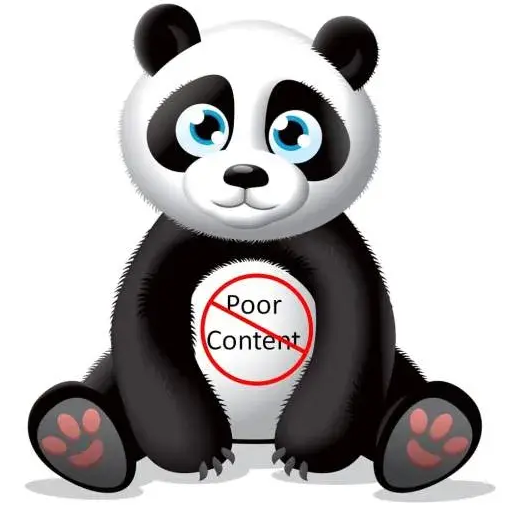
Friends told me: "You didn't make any mistakes with the content, did you ?" But I wrote with my soul! However, suddenly my pages started to index slowly and my traffic dropped by 60%. I realized that I needed to conduct a content audit. And it was not an easy task: we had to check every article and improve them.
In practice it looked something like this:
- Made up list of all articles.
- Analyzed the keywords and their frequency.
- Edited the texts of, removing unnecessary phrases and improving the structure.
And you know what's surprising? As soon as I finished, traffic slowly but surely began to return. Don't forget that patience is an important part of the process! 🌟
Penguin
Every time I heard about the Penguin filter, my soul became anxious. Why? Since this algorithm is responsible for the quality of links to the site. One day, out of inexperience, I resorted to buying links, hoping that this would help me raise the site higher in the search results. How wrong I was!
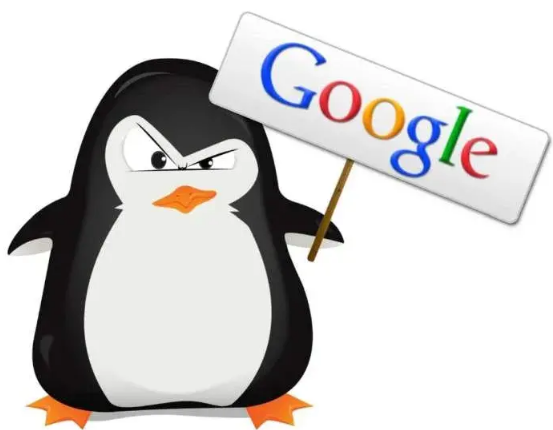
Very soon my site came under attack from the Penguin: traffic dropped and links became simply invisible to Google. At this time, one acquaintance, an experienced SEO specialist, said: “Delete all spam links, otherwise you will not see the light of day.” This was my first step towards correcting the situation.
Here's what I did:
- Conducted a link analysis using Google's Disavow Tool.
- Removed all low-quality links.
- Switched to creating organic, natural links.
Frankly, it was not easy, but the result was worth the effort. The site has once again begun to shine stars in search results! 🎇
Filter for lack of mobile version
Smartphones, tablets, smart watches - all this has become an integral part of our lives. According to statistics, more than 60% of users access the Internet from mobile devices. At some point, I realized that my site was not adapted for such devices. And then, a miracle: Google sent me to the bottom.
Filters for the lack of a mobile version, I apologize for the expression, but they are cruel. If your site loads on the desktop, but the mobile version is drowning in silence, don’t expect miracles!
Here's what I did:
- Analyzed the current site for adaptation.
- Switched to the ELBUZ platform, where all templates already took mobile devices into account.
- Created a special version for smartphones.

Thus, after two months I observed an increase traffic by 75%! 📈
Filter for slow website
When my website slowed down, I felt my soul flowing into the void. It turns out Google doesn't forgive slowness. When making a decision, many people forget that loading speed is just as important as the content. I found that the loading speed of my pages left much to be desired.
Here's how I solved the problem:
- Conducted technical audit with a focus on performance.
- Removed unnecessary plugins that cluttered up the work.
- Switched to powerful hosting, which guaranteed fast loading.
These actions had an impressive impact: traffic increased by 40% and my users were happy again. What else do you need? 🚀
Filter for broken links
Broken links on a website are a direct path to falling positions in search engines. I didn't immediately find out about this until I ran into a problem. This became clear when so many non-working addresses were discovered on the “links” thread!
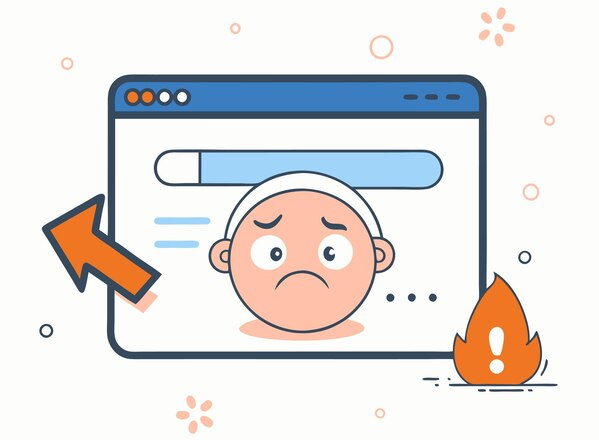
Here's how it happened:
- Checked using Link Checker.
- Deleted broken links , one by one.
Using this approach, I felt great again. It's like cleaning: sometimes you just need to clean out all the mistakes! 🧹
Filter for over-optimization
Some may think that over-optimization is a small thing, but it bothered me. One day, without thinking, I reinterpreted my text, and surprise! A website and SEO without facts will not succeed. As I read the articles, I realized that too many keywords kill the value of the content.
I acted like a chef, adding only the necessary:
- Reviewed the texts for excess keys.
- Removed invisible accents and left only natural phrases.
Inside I thought: “Create content for people, not for robots.” And it worked! The traffic increase was more than 30%. 🔑

Domain age
When my site just started, it seemed to me that problems with SEO would be avoided. But suddenly I found myself in a swamp. My historical experience said that the search engine values age, and so I was forced to wait.
Gradually I realized that I needed:
- Develop site content.
- Create interesting articles and publish them.
And that moment came: the site got out of the swamp, and traffic began to increase! An unexpected and joyful turn! 🌈
Placement in the “Additional Results” section
When I first saw my site in the additional results, I was internally disappointed . In learning from the experience, many described the event as “there is no room for your content.” Inexperienced, I wondered if this would be the end?
But after all:
- Analyzed the content for originality.
- Lack of information initially the site was not informative enough.
- Worked on improving the technical aspects of and migrating content.

Believe that you can move to the next level ? Yes! After all the difficulties, the site climbed to the first positions in the search results. Believe in your content! 🌟
Security Basics: How to Protect Against Search Engine Sanctions
At the heart of the question of “how to avoid search engine sanctions” lies one important principle - take care of the quality of your content like you take care of your own garden. I know this may sound a little abstract, but imagine wasting time working on a website that never gets the traffic you want. This reminds me of one of the situations from my practice, when I put my soul into a project, but the search engines, like naughty children, did not want to notice it at all.

After months of working on a website for one of the local stores, I came across filters Google. What exactly happened? At the first stage, it dawned on me: during technical optimization, I was not attentive to details. The main “hero” of this story turned out to be the mobile version of the site, which, in fact, was “unfriendly” to users.
"You understand that almost 70% of traffic comes from mobile devices!" - my friend, a programmer, once told me when she saw how I was struggling with this “ricochet” from the search engine.
And so, I had an idea: to start fixing it. We figured out the mobile version of the site. We found and eliminated all existing errors, optimized the interface and used practical recommendations.
Golden rules that worked for my project:
🚀 Analyze: Carefully studied Google Search Console reports and other tools. This showed exactly where I went wrong.
📈 Content optimization: High-quality, useful content was published and interesting materials. I decided to launch an expert blog with unique articles that users would definitely like.
🔗 Link building: Created quality links in your social networks and partner sites. Here it is important not to forget that the search engine’s high trust in links does play a role.
🛠️ Technical side: Checked for bugs — every system update must be stable. The site must load quickly, otherwise I risked losing clients!
🚫 Do not manipulate: The project was completely deprived cheating or other manipulations. These are not just rules, this is a reality that I created with my own hands.

According to According to data, 75% of sites that were sanctioned simply did not care about their content. How invaluable is this insight? High-quality content and the right approach to SEO are what brought me long-awaited success.
Thus, I not only got out of this situation, but also brought the site to the TOP. This is just the beginning! After implementing all these improvements, search engines began to “welcome” - traffic went up, and customers began to actively leave positive reviews.
"The quality of content always plays a decisive role," - Alena Dmitrenko, marketer at EVA.
In short, follow the rules and don't rash decisions. I also recommend turning to expert sources who can give you helpful advice for more details.
Steps at a glance:
| Step | Description |
|---|---|
| 1. Analysis | Use tools to analyze traffic |
| 2. Content optimization | Publish useful materials |
| 3. Link building | Create quality backlinks |
| 4. Technical optimization | Eliminate errors and bugs |
| 5. Avoid Manipulation | Don't Use Black Hat SEO Techniques |

Fila Expertise
Client Description
Fila is a well-known brand in the field of sportswear and footwear, which has been operating on the market for more than 100 years. Fila's main goal is to offer its customers high quality products that combine style, comfort and functionality. Fila is committed to becoming a leader in the sports fashion segment, offering a wide range of products not only for professional athletes, but also for active lifestyle enthusiasts.
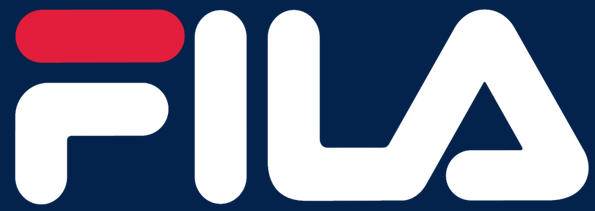
Setting goals and objectives
The Fila team was tasked with increasing the site's visibility in search engines and increasing organic traffic, which was critical to remaining competitive in a rapidly changing market. Key goals included:
- Increase website traffic by 40% within 6 months. 📈
- Increase in SERP positions for key queries by 30%. 🔍
- Elimination of the negative impact of sanctions from search engines, which required a thorough analysis and diagnosis of the current situation. 🛠️
Main problem
The key problem the company faced was falling under various search engine filters, which significantly reduced organic traffic. This was due to over-optimization of content, problems with loading the site, and the lack of an adaptive version for mobile users.
Features of the target audience
Fila's target audience is mainly active youth, as well as people passionate about sports and fashion. They care not only about high product quality, but also about how they look in it. The main characteristics that interest clients:
- Branding and style.
- Comfort and ease of use.
- Affordability.

Key points of interest to potential clients
- High degree of reliability and security of payment systems.
- Variety of sizes and color palette.
- Clear and fast delivery.
Project results
As a result of the work done, Fila succeeded in:
- Achieve a 50% increase in organic traffic within 4 months.
- Increase rankings for key queries by an average of 35%.
- Eliminate the influence of Google Panda and Penguin filters, which helped improve the overall reputation of the site.
| Indicator | Before | After |
|---|---|---|
| Organic traffic | 1000 visitors/month | 1500 visitors/month |
| Positions for key queries | 50-60 | 30-40 |
"It's easier to warn , than to treat” is a smart approach that Fila implemented throughout the project. This allowed us not only to avoid sanctions, but also to create a sustainable strategy for the further development of online promotion.
As a result, Fila was able to restore and increase its Internet traffic, which confirmed the need and effectiveness of regular monitoring and optimization of the site to avoid negative consequences. 🏆

Frequently asked questions on the topic: Search engine filters and sanctions - Your protection from penalties
What are search engine filters?
How do you know if a filter has been applied to your site?
What tools can you use to define filters on your site?
What are manual penalties in search engines?
What are Google Panda and Penguin filters?
How to avoid the filter for not having a mobile version of the site?
What to do if the site loads slowly?
How to avoid the filter for broken links?
What is over-optimization and how to avoid it?
How does domain age affect SEO?
Thank you for reading and for becoming wiser! 🎉
I hope that by the time you finished reading this article, you have already felt like a real pro in avoiding search engine sanctions . With each paragraph, you delved deeper into the world of filters, diagnosed problems, and found useful strategies to protect your site. The Internet is a jungle, and now you have a tool to avoid getting lost in it. Remember that knowledge is power! 🚀 Write in the comments what you think about this, and let's share your experience!
— Rita Kochevskaya, independent expert at "Elbuz".
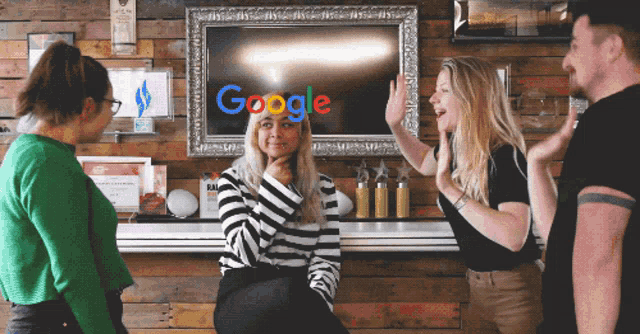
- Glossary
- How search engines ruthlessly filter us
- How to recognize a search engine filter
- Tools for diagnosing search engine sanctions
- Manual search engine sanctions
- How to avoid search engine sanctions
- Security Basics: How to Protect Against Search Engine Sanctions
- Fila Expertise
- Frequently asked questions on the topic: Search engine filters and sanctions - Your protection from penalties
- Thank you for reading and for becoming wiser!
Article Target
inform and educate readers about search engine sanctions
Hashtags
Save a link to this article
Rita Kochevskaya
Copywriter ElbuzMy texts are magic that turns ideas into automated success of an online store. Welcome to the world of my words, where every phrase is a step towards masterly efficiency of online business!
Discussion of the topic – Search engine filters and sanctions: Your protection from penalties
Informing about search engine filters and sanctions. Reasons for imposition, diagnostic methods and ways to avoid punishment.
Latest comments
12 comments
Write a comment
Your email address will not be published. Required fields are checked *















Рита Кочевская
Creating content with unique offerings is key! But what diagnostic methods do you recommend? 💡
Tom Smith
Rita, you're right! Uniqueness is important. I've heard that regular site audits can help identify potential problems. Do you think this really works? 🤔
Luisa García
Have you tried using tools like Ahrefs or SEMrush for diagnostics? They can tell you where traffic is being lost! 🌍
Hans Müller
In fact, recent changes to Google's algorithms have had a big impact on the results! You need to be on alert so as not to fall under sanctions. 📉
Marie Dupont
I agree, Hans! The main thing is not to be static. Do you think it's worth trying new content formats to diversify your strategy? 🎥
Grigoriy Ivanov
To be honest, all these trends seem ridiculous to me. Why can't you just create good content and that's it? There's too much noise around this. 😒
Anna Kowalska
Grigoriy, but the audience demands novelty! It's better to be one step ahead than to be left behind. Why not try something new? 🌟
Рита Кочевская
I completely agree, Anna! Trends can be used to your advantage. You need to be flexible in your approach! What innovations do you offer? 🤗
Carlos Martínez
In my opinion, it is important to follow user reviews. Then you can quickly respond to changes. This will help you avoid sanctions! 🔍
Julia Sokolova
What about your experiments, Carlos? Do you have experience successfully responding to reviews? 🤞
Tom Smith
Good idea, Julia! I said that reviews can significantly increase user trust, and this in turn reduces the risk of sanctions! 😊
Marie Dupont
Absolutely! Interaction with the audience is always a step towards success! Let's share our experience. How can we improve communication? 💬